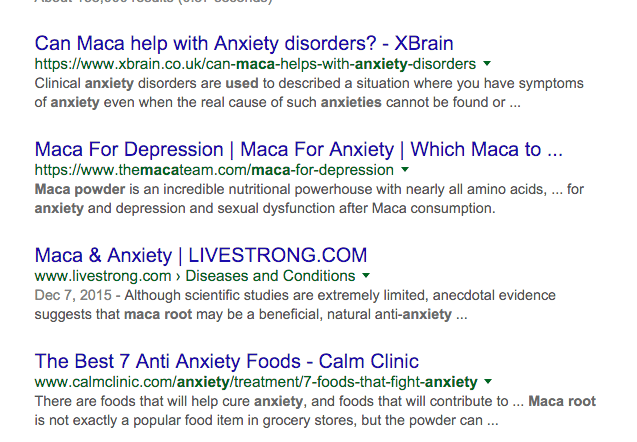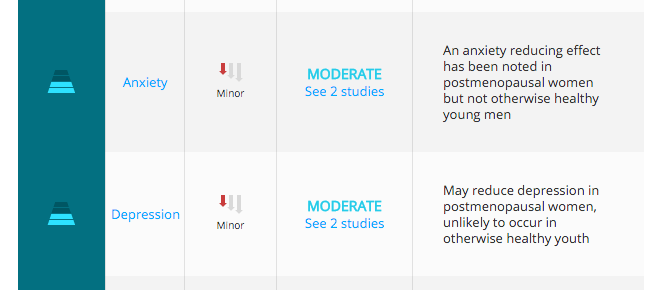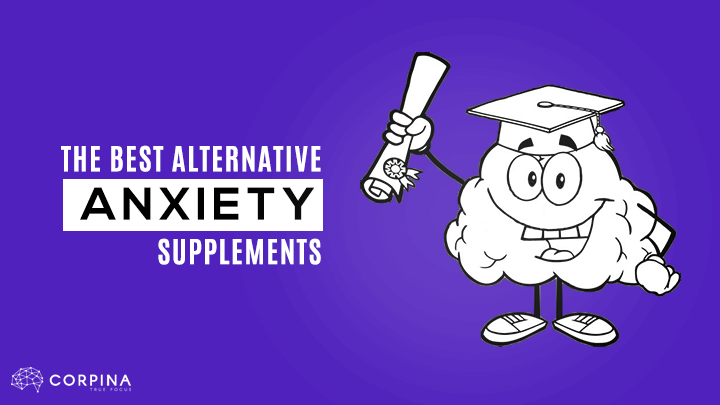Alternative Anxiety Medication: Do OTC Supplements Work?
Suffer from anxiety? If you live in the US, you’re not alone. In fact, roughly 20% of the US population – or one in five people – is affected with social anxiety disorder.
Like many, you’ve probably tried buying OTC supplements – some kind of herbal remedy to treat your anxiety without the need for a prescription. Or perhaps your doctor prescribed you something that didn’t work and you opted for the other alternatives.
These alternatives may have natural ingredients packaged within each pill. But the question is, do OTC supplements really work? If they do, how effective are they compared to prescribed medications that purport to have similar effects?
What’s in a pill?
When seeking help, we often blindlessly put our faith in physicians without questioning their judgement. But the truth is, “following doctors’ orders” isn’t always the ideal. After years of taking anti-anxiety medication with little-to-no long-term benefit, many people are left wondering: what’s in these drugs?
Many prescribed medications are actually selective serotonin reuptake inhibitors (SSRIs) like the Prozac, Lexapro, Zoloft, and Paxil; serotonin-nonrepinephrine reuptake inhibitors (SNRIs) such as Effexor, and Pristique; and benzodiazepines (Xanax, Klonopin, Ativan, and Valium).
At times, beta blockers like Propranolol is prescribed to patients with social anxiety disorder. This deluge of drugs has patients suffering under the weight of “medication overload”.

If these brand name drugs make you cringe, then likely you’ve tried one or more and dealt with its unpleasant side effects: lethargy, loss of appetite, and loss of libido to name a few. The reality is you don’t need a prescription; there are alternative medications for anxiety available over-the-counter.
OTC Medication for Anxiety
One such medication is Phenibut, a common GABA agonist used to treat social anxiety, depression, and even stress.
Phenibut is recently becoming popular among a younger, health-conscious generation who can’t afford expensive prescriptions and prefer to avoid the social stigma of asking a doctor for anxiety medication. Once a “fringe” supplement, Phenibut has quickly proven its effectiveness among users.
Still others seek out natural, alternative means to treat their anxiety problems, especially sufferers of frequent panic attacks. Despite its legality and efficacy, Phenibut’s “synthetic” nature can be turn-off for some — just another “pill in disguide”.
Thus, individuals avoid taking any “man-made” supplements, resorting to natural herbs to help them with anxiety or panic attacks.
Natural Alternatives
Nowadays, ”natural” medication for anxiety (such as the aforementioned over-the-counter supplements) have become the most popular alternative medicines to treat anxiety.
Despite their “natural” branding, many herbals aren’t backed my much research. The health supplement market is expected to grow to nearly $200 billion globally by 2020, and much of it is unregulated. As such, it’s important to do a bit of research as to whether supplements are really effective or not.
Many herbal supplements will not have the same effect compared to prescription medications for your anxiety levels. And while they work for some, they do not work for others.
There is ample research showing that certain anti-anxiety supplements don’t follow through on their marketed effects. Take, for example, the popular supplement Maca. Many sites make the claim that maca works for anxiety:

But look at the research. Examine.com, a trusted source on the effects of health supplements, shows the following human effect matrix for Maca on anxiety and depression:

The fact is: Maca (and other natural supplements) are just that: supplements to support other lifestyle behaviors. Like prescription medications, they don’t have the sufficient potency to eradicate anxiety problems altogether.
As for now, they don’t have any effect at all or they don’t have enough evidence to prove that they are broadly effective.
There is a vacuum of definitive, concrete evidence that over-the-counter supplements have the same benefits as the prescribed medicines. In fact, there is also uncertainty to which of the hundreds of OTC anxiolytics in the market are effective and which of them are considered harmful.
If you want to take alternative medicine for panic attacks or a social anxiety problem, keep these precautions in mind.
The “Best” Anti-Anxiety Supplements
There are loads of types of OTC supplements you can choose. But what you could expect is that they are not proven to be a good alternative to treat anxiety as there is no evidence at all.
For example, the most popular (by sales volume in the US) OTC supplements contain the following natural ingredients: German chamomile, Gingko, Passionflower, Lavender, Valerian root, and Kava.
Many anecdotal user reports support the manufacture claims of anxiolytic effects. But at present, there is a dearth of clinical evidence proving their efficacy.
Based from the results from the surveyed patients with anxiety problems, they all said the same. From the six given supplements, the results showed that these OTC supplements didn’t have the sufficient effectiveness and some didn’t have much effect to the surveyors at all.
The list contained 28 matched herbs present in the OTC supplements.
OTC Supplements Have Uncertain Effectiveness
Even from authorities like Examine and the ADAA, there is no definitve work that OTC supplements can be considered an effective alternative treatment for curing anxiety, not even as long-term adjunct treatment with prescriptions.
If these aren’t proven to treat general types of anxiety, how much to those with panic attacks? The research is almost totally lackign in this area.
There are no exact over-the-counter supplement brands to recommend to patients suffering from panic attacks and general anxiety problems. It is even possible that by taking OTC supplements, you run the risk of exacerbating your anxiety problems.
Prescribed Medications And OTC Supplements, Both Missing the Mark
Prescription medications and OTC anxiety supplements are two sides of the same coin. No matter how it lands, the result is not the ideal solution for “curing” anxiety.
To that end, there is little difference between taking medication and the over-the-counter supplements. Yet, they are just bringing more risks when you take them.
Rather than taking the OTC supplements to self-medicate your anxiety, there is a better solution: adopting lifestyle changes is always the ideal when it comes to anxiety treatments. Activities like meditation, yoga, and regular aerobic exercise all definitively reduce anxiety and make you feel great.
These are better than taking the risk to seek over-the-counter alternatives without knowing their effectiveness.

